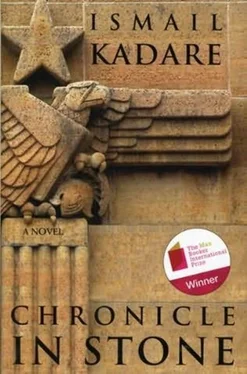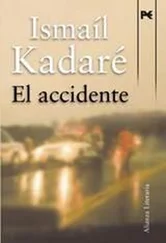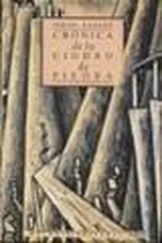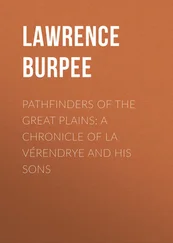Ismaíl Kadaré - Chronicle in Stone
Здесь есть возможность читать онлайн «Ismaíl Kadaré - Chronicle in Stone» весь текст электронной книги совершенно бесплатно (целиком полную версию без сокращений). В некоторых случаях можно слушать аудио, скачать через торрент в формате fb2 и присутствует краткое содержание. Жанр: Современная проза, на английском языке. Описание произведения, (предисловие) а так же отзывы посетителей доступны на портале библиотеки ЛибКат.
- Название:Chronicle in Stone
- Автор:
- Жанр:
- Год:неизвестен
- ISBN:нет данных
- Рейтинг книги:4 / 5. Голосов: 1
-
Избранное:Добавить в избранное
- Отзывы:
-
Ваша оценка:
- 80
- 1
- 2
- 3
- 4
- 5
Chronicle in Stone: краткое содержание, описание и аннотация
Предлагаем к чтению аннотацию, описание, краткое содержание или предисловие (зависит от того, что написал сам автор книги «Chronicle in Stone»). Если вы не нашли необходимую информацию о книге — напишите в комментариях, мы постараемся отыскать её.
Chronicle in Stone — читать онлайн бесплатно полную книгу (весь текст) целиком
Ниже представлен текст книги, разбитый по страницам. Система сохранения места последней прочитанной страницы, позволяет с удобством читать онлайн бесплатно книгу «Chronicle in Stone», без необходимости каждый раз заново искать на чём Вы остановились. Поставьте закладку, и сможете в любой момент перейти на страницу, на которой закончили чтение.
Интервал:
Закладка:
As for Xhexho, there was scarcely any sign of her. That happened from time to time. She would suddenly vanish. But no one worried much about these disappearances, any more than anyone was surprised when she reappeared.
Sometimes our cellar received chance visitors, passersby caught by the bombing or people visiting the neighbourhood. That was how the old artilleryman, Avdo Babaramo, arrived one day with his wife. He sat down near some old men who spent hours airing their views on world affairs in endless conversations in which all kinds of names of states, kings and governments came up. They also talked about Albania a lot. I listened curiously, racking my brain trying to understand exactly what was this Albania they were so worried about. Was it everything I saw around me: courtyards, streets, clouds, words, Xhexho’s voice, people’s eyes, boredom, or only a part of all that?
“In Smyrna one time,” the old artilleryman said, “a dervish asked me, ‘Which do you love more, your family or Albania?’ Albania, of course, I told him. A family you can make overnight. You walk out of a coffee house, run into a woman on the corner, take her to a hotel, and boom – wife and children. But you can’t make Albania overnight after a quick drink in a coffee house, can you? No, not in one night and not in a thousand and one nights either.”
“What a way to talk!” his wife said. “You’re getting senile. The older you get, the more you blabber on.”
“Oh shut up! As if you women knew anything about politics.”
“Yes, sir,” another old man added. “Albania is a complicated business all right.”
“ Ex-treme-ly complicated. It sure is.”
Usually these conversations were interrupted by the siren, and people rushed downstairs. Grandmother always went down last. The stairs creaked in protest at her footsteps. Hurry, Grandmother, hurry! But she never hurried. She always had some reason for being late. Sometimes she was still on the stairs when the first bombs exploded. When she heard the sound, she would make an impatient gesture as if shooing away a fly, and putting her hands over her ears, she would say, “Go on! Burst away.”
I would watch people heading for the stairs, anxious to see Çeço Kaili and his daughter. But the red-headed Çeço never came. He obviously preferred to brave the bombs at home rather than have people see his daughter’s beard. Old Xivo Gavo, who spent his days and nights writing his chronicle, didn’t come either. The old crones also stayed away. Aqif Kashahu, on the other hand, came with his two sons and his wife and daughter. He was as tall and stout as his daughter was small and frail. She never spoke, just cowered in a corner with a pensive, absent-minded air. Bido Macbeth Sherifi stared at Aqif Kashahu as if he were a ghost. Every time his wife came down into the cellar, she was shaking flour from her hands. And the flour was always red with blood. Aqif Kashahu’s ghost looked at everyone in turn. The cellar was full.
“Another air raid!”
The siren was always soft at first, as if awakening from a dream, but then its wailing got more and more raucous. Between two blasts was a valley of silence. A deep valley. Then the peaks of wailing again. Loud and undulating. Pit of silence. Another bout of wailing. Wailing and more wailing. Like trying to use a blanket to smother a piercing shriek that sought only to tear through it. A wild, savage shriek. The whole world is shrieking. Then the bombs. Very near. Then a sudden thunderbolt, an invisible hand turns the world upside down and blows out the two kerosene lamps. Black darkness. A scream rips the darkness. No one moves. We must be dead.
Silence. Then something moves. A noise. Like a match being struck. We are not dead. The match. The pale flame cuts streaks of light in the dark room. Everyone starts moving. All are alive. They light another lamp. But no. Someone is dead. Aqif Kashahu’s daughter’s thin arms droop lifelessly. Her head too. Her chestnut hair hangs motionless.
At last Aqif Kashahu lets out the scream I had long been expecting. But it’s not a cry of pain. A ferocious shriek. The girl’s head quivers. She turns round slowly, looking dazed. Her dangling arms contract. The boy in whose arms she was entwined during the bombing also stirs.
“Whore!” Aqif Kashahu screams.
His huge hand grabs her by the hair and he drags her towards the stairs. She tries to get up but falls down again. He hauls her to the middle of the cellar, and only at the foot of the stairs does she somehow manage to get up, scrambling on all fours. He still has hold of her hair.
We could hear the whistling of a dive-bomber outside, but Aqif Kashahu did not turn back. Dragging his daughter by the hair, he went out into the street at the height of the thunderous roar. And so they left under the falling bombs.
The boy had moved back into a corner and was looking at everyone like a trapped animal. I didn’t know him. He had light eyes and fair hair. His jaw trembled nervously. Suspiciously, as though expecting someone to jump him any minute, he crossed the cellar through a silence that wasn’t silent and went out.
An uproar broke out as soon as he had gone.
“Who in the world was that boy? Where did he come from? Woe betide us!”
“I’ve never seen him before.”
“God, that’s all we needed!”
“How shameful!”
“So Kashahu’s daughter wasn’t as pure as she made out!”
“Deplorable behaviour!”
“She was all over him, like a tart!”
“Like an Italian slut!”
The women pinched their cheeks in despair, adjusted the scarves on their heads, and clucked in indignation. The men stayed stock still.
“Love,” Javer muttered through clenched teeth.
Isa watched sadly.
The whole cellar seethed.
The incident was the talk of the town for a long time. People were obsessed by those two arms hanging lifelessly around the neck of a boy whom no one seemed to know. The two thin arms of the girl gradually turned into vicious talons that seized people by the throat, choking off their breath, suffocating them.
But just as from the corpse of one alarming event a new one always sprouts, so the talk about Aqif Kashahu’s daughter and her boyfriend was increasingly accompanied by comments about the strange sketches now being made by Dino Çiço, the town inventor.
Dino Çiço had long since given up sleep and was now encroaching on the sleep of others, poring over various calculations and sketches that no one in the region could make head or tail of. The rumour was that these figures had already attracted the interest of some Austrian or Japanese scientists (on this point there were conflicting reports), who had invited him to continue his work in their country, but he had refused. Subsequently Austrian or Portuguese scientists (again their nationality was uncertain) had tried to buy the patent for his invention, but he had declined their offer.
For a long time our townsman Dino Çiço had worked on his invention in complete secrecy. The exacting task had steadily paled his cheeks and reddened his eyes. The city could recall other men who had devoted their lives to calculations and sketches. Still others preferred direct experimentation. The teacher Qani Kekezi had stated more than once that he learned more from dissecting one cat than from reading any number of anatomy books.
Dino Çiço, however, was completely taken up with his own research. When construction of the aerodrome began at the edge of town, he temporarily laid his regular studies aside and threw himself into work on a new invention. He decided to build an aircraft himself. But this would be a special plane, powered not by an ordinary engine, but by a mechanism based on perpetual motion, or perpetuum mobile , as some people called it. Different people pronounced these latter words differently, and the question of pronunciation caused a few arguments, and even exchanges of blows and some broken teeth, which of course further altered the pronunciation of these strange words.
Читать дальшеИнтервал:
Закладка:
Похожие книги на «Chronicle in Stone»
Представляем Вашему вниманию похожие книги на «Chronicle in Stone» списком для выбора. Мы отобрали схожую по названию и смыслу литературу в надежде предоставить читателям больше вариантов отыскать новые, интересные, ещё непрочитанные произведения.
Обсуждение, отзывы о книге «Chronicle in Stone» и просто собственные мнения читателей. Оставьте ваши комментарии, напишите, что Вы думаете о произведении, его смысле или главных героях. Укажите что конкретно понравилось, а что нет, и почему Вы так считаете.












